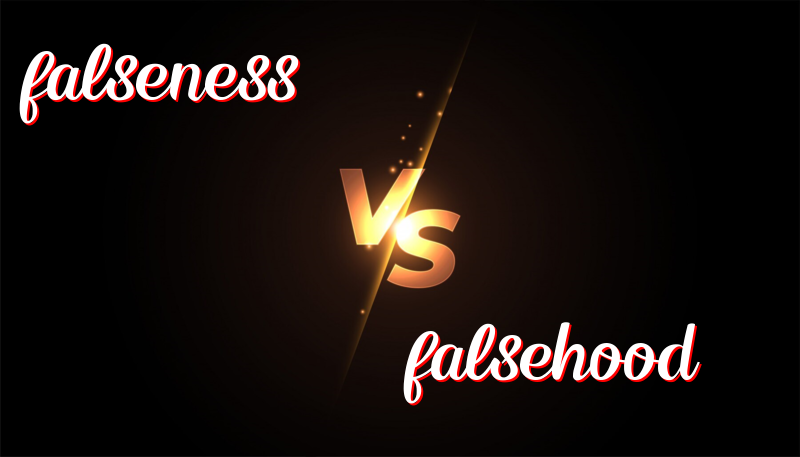Understanding the Difference Between Falseness and Falsehood
Understanding the Difference: Falseness vs. Falsehood
Both “falseness” and “falsehood” can be confusing because they both have to do with not being true. Let’s look at how they are different and how to use them.
History of the Words
“Falseness” comes from the old word “false,” which means not true or wrong. “Falsehood” also comes from “false” but adds the part “hood,” like in “childhood,” to show a state or quality.
How to Use Them
Falseness
“Falseness” is a noun. It means the quality of being false. It talks about not being honest or real.
- The falseness of his smile made everyone uncomfortable.
- I could feel the falseness in her voice.
- The magician’s trick relied on the falseness of his actions.
- The falseness of the report was soon discovered.
- The falseness of the jewelry was obvious once I looked closely.
Falsehood
“Falsehood” is also a noun. It means a lie or something not true. It often refers to a specific piece of information.
- The claim was a complete falsehood.
- He spread falsehoods about her to damage her reputation.
- The story was filled with falsehoods and should not be trusted.
- Telling a falsehood is never a good thing.
- She later admitted her statements were falsehoods.
Trick to Remember the Difference
To remember the difference, think of “falseness” as the overall quality—like wearing a fake smile. For “falsehood,” think of a specific lie—like one wrong fact in a story.
Summary of Usage
Use “falseness” when talking about the quality of things being false or fake. Use “falsehood” when talking about a specific lie or untrue statement. Remember, “falseness” is like a fake feeling or behavior, and “falsehood” is like a specific lie or wrong fact.

Leave a Reply
You must be logged in to post a comment.